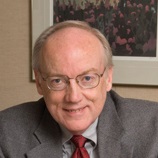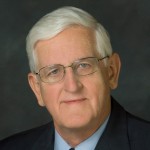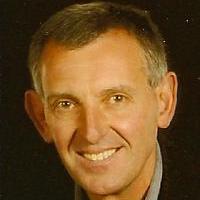Welcoming aboard new Heads of Faculty
| 1 July, 2015 | Adie Chan |
|

|
We welcome William (Bill) Catterall to F1000 as a Head of Faculty for Pharmacology & Drug Discovery. Professor Catterall joins fellow Heads of Faculty Floyd Bloom, Paul Insel and Leslie Iversen in this role.
 Catterall is a professor and chair at the University of Washington, and a Member of the National Academy of Sciences and the Nation Academy of Medicine (until recently known as the Institute of Medicine). He is also a Foreign Member of the Royal Society. Catterall is well known for his role in the discovery of the voltage-gated sodium channel and calcium channel proteins, and the elucidation of their function and regulation. His recent work has turned toward understanding diseases caused by impaired function and regulation of voltage-gated ion channels, including epilepsy and periodic paralysis. You can read more about his research here.
Catterall is a professor and chair at the University of Washington, and a Member of the National Academy of Sciences and the Nation Academy of Medicine (until recently known as the Institute of Medicine). He is also a Foreign Member of the Royal Society. Catterall is well known for his role in the discovery of the voltage-gated sodium channel and calcium channel proteins, and the elucidation of their function and regulation. His recent work has turned toward understanding diseases caused by impaired function and regulation of voltage-gated ion channels, including epilepsy and periodic paralysis. You can read more about his research here.
Earlier this year, we also welcomed Joseph Martin , Harvard Medical School, and Alastair Compston, Cambridge University, as joint Heads of the Neurological Disorders Faculty. They join Richard Frackowiak and Guy McKhann in the role of joint Heads of Faculty.
 Joseph Martin is Professor of Neurobiology at Harvard Medical School. He previously served as Dean of Harvard Medical School before stepping down in 2007. Dr Martin’s research focused on hypothalamic regulation of pituitary hormone secretions and the application of neurochemical and molecular genetics to better understand the causes of neurological and neurodegenerative disease. His work led to a breakthrough in identifying a genetic marker near the gene for Huntington’s disease, eventually culminating in the identification of the gene for the disorder. Read more about his research.
Joseph Martin is Professor of Neurobiology at Harvard Medical School. He previously served as Dean of Harvard Medical School before stepping down in 2007. Dr Martin’s research focused on hypothalamic regulation of pituitary hormone secretions and the application of neurochemical and molecular genetics to better understand the causes of neurological and neurodegenerative disease. His work led to a breakthrough in identifying a genetic marker near the gene for Huntington’s disease, eventually culminating in the identification of the gene for the disorder. Read more about his research.
 Alastair Compston is Professor and Head of the Department of Clinical Neurosciences at the University of Cambridge. He co-founded the MRC Cambridge Centre for Brain Repair, the Wolfson Brain Imaging Centre, and Cambridge Neuroscience. He has won many awards for his research, both clinical and experimental, into multiple sclerosis (MS). In April this year, he won the John Dystel Prize for driving breakthroughs in therapeutic immunology and genetics for MS. Read more about his research here.
Alastair Compston is Professor and Head of the Department of Clinical Neurosciences at the University of Cambridge. He co-founded the MRC Cambridge Centre for Brain Repair, the Wolfson Brain Imaging Centre, and Cambridge Neuroscience. He has won many awards for his research, both clinical and experimental, into multiple sclerosis (MS). In April this year, he won the John Dystel Prize for driving breakthroughs in therapeutic immunology and genetics for MS. Read more about his research here.

|

